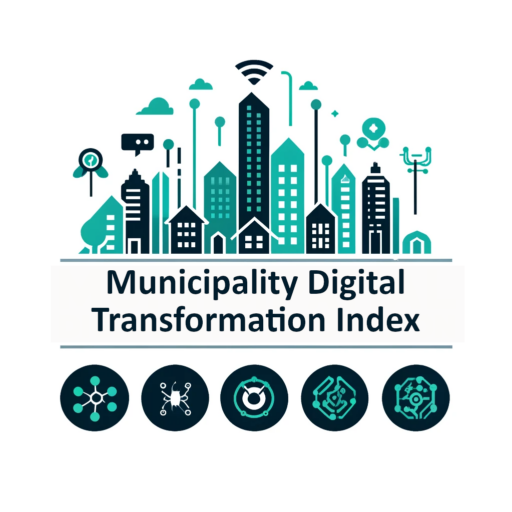In today’s digital society, the wide range of digital services in the private sector creates expectations for the same or even more efficient digital services in the public sector. Thus, local governments or municipalities are faced with the need for digital transformation (DT). However, in order to enable proper planning, implementation and evaluation of DT, it is crucial to put in place appropriate measurement and monitoring systems that allow for clarity, timeliness, comparability and even competition. This has been recognised by the EU and its Member States, which have developed various measurement systems and frameworks that define benchmarks for DP, or so-called digital transformation maturity models, based on strategic objectives, best practices and the desire to move forward in a holistic manner. Among the best known are certainly the eGovernment benchmark and the DESI index.
A similar concept is certainly needed at municipal level. It is difficult to make progress in a new field, which the DP of municipalities undoubtedly is, and to set long-term goals, if a municipality cannot assess its relative progress compared to other municipalities and learn from the best. For Slovenia, there is a local DESI index, a composite measure for assessing the maturity of the digital economy and society at municipal level, which includes various indicators reflecting the state of the digital dimensions in each municipality. The index is structured around four core dimensions and corresponding sub-dimensions and allows for objective evaluation and comparison of the digital maturity of municipalities. However, as the current solution of the DESI Local Index includes some significant limitations (set of indicators, data sources, compatibility with the EU DESI), it needs to be upgraded accordingly. The administrative arrangements of the EU Member States are diverse in the field of local self-government, and their specifications have an important impact on the way municipalities operate and, of course, on their digital transformation. It is therefore necessary to develop a tailor-made model for each country to measure the maturity of the digital transformation of municipalities, which takes into account its specificities, is aligned with the DESI index for countries and is based on publicly available data that can be collected or measured. The creation of such a local DESI for Slovenia will allow monitoring the progress of digital transformation at the level of municipalities and comparatively for all municipalities.
